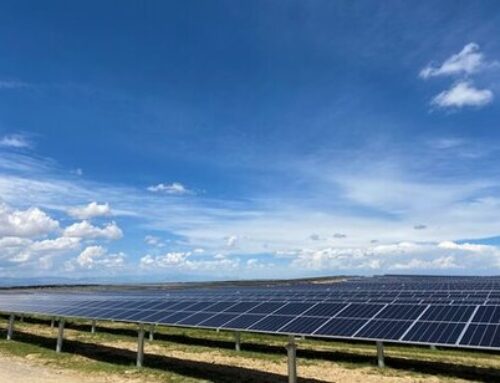Devastating blackout in Spain raises questions about reliance on…
April 30, 2025
Monday’s devastating blackout in Spain is raising questions about the country’s massive reliance on solar and wind power for electricity — and whether the new power sources may have played a role.
Spain’s socialist government has faced increasing pressure to explain what went wrong on Monday, when widespread power cuts saw railways, airports, and major sporting events grind to a halt across the country, as well as Portugal and part of France.
However, the government has been quick to claim renewable power is not to blame — despite not yet having a full explanation of exactly what went wrong.
Renewable energy accounted for almost two-thirds of Spain’s electricity production just before the system crashed this week, according to data from the country’s partially state-owned grid operator REE.
The source of Monday’s blackouts has been narrowed down to two separate incidents in southwestern Spain where two substations experienced a loss of generation, according to REE, which is headed by socialist ex-lawmaker Beatriz Corredor.
One key factor that experts have pointed to is that traditional gas and nuclear power plants have spinning turbines to generate electricity. Those turbines have inertia — meaning they’re able to keep up their momentum even when they’re not being powered — and store certain amounts of energy to help regulate the power grid.
With solar power, there is no such backup inherent in the design, thus, power grids must resort to using batteries and other methods to store energy.
When solar plants go offline, output ceases immediately.
The lack of inertia means that “imbalances must be corrected more quickly,” David Bayshaw, professor of climate science and energy meteorology at the University of Reading in the United Kingdom, told the Wall Street Journal.
“Outage events, when they occur, are likely to become more significant and widespread.”
Experts have previously warned that Europe’s increasing reliance on renewable energy — which fluctuates with the weather — could lead to blackouts and other supply issues.
A sudden drop of energy output to zero is the biggest risk faced by renewables, experts say.
Spanish officials have launched an investigation and the government is seeking answers from private energy companies that feed into the grid, Spanish Prime Minister Pedro Sanchez told reporters on Wednesday.
He also didn’t rule out a cyber attack for being behind the blackouts, something which has been dismissed by REE.
A “rare atmospheric phenomenon” was blamed for causing Monday’s unprecedented blackouts, according to REN, Portugal’s grid operator.
But no “unusual meteorological or atmospheric phenomena” or temperature fluctuations were recorded at weather stations at the time of the blackouts, Spain’s meteorological agency AEMET said on Tuesday.
Just before the system crashed, Spain was getting 53% of its electricity from solar energy, 11% from wind, and 15% from nuclear and gas, according to REE.
Spain is planning to shut down all of its nuclear power plants once it believes wind and solar can replace them.
Corredor, the utility honcho, has spoken out to deny that Spain’s reliance on renewable energy was to blame.
“These technologies are already stable and they have systems that allow them to operate as a conventional generation system without any safety issues,” she told radio station Cadena SER.
She also insisted that she was not considering resigning.
The costs of Monday’s blackout across Spain and Portugal are expected to range between a staggering $2.5 billion and $5 billion, reported Reuters, citing investment bank RBC.
Some 35,000 stranded passengers had to be rescued from railways and underground tunnels, Spanish emergency workers said.
Search
RECENT PRESS RELEASES
Related Post















